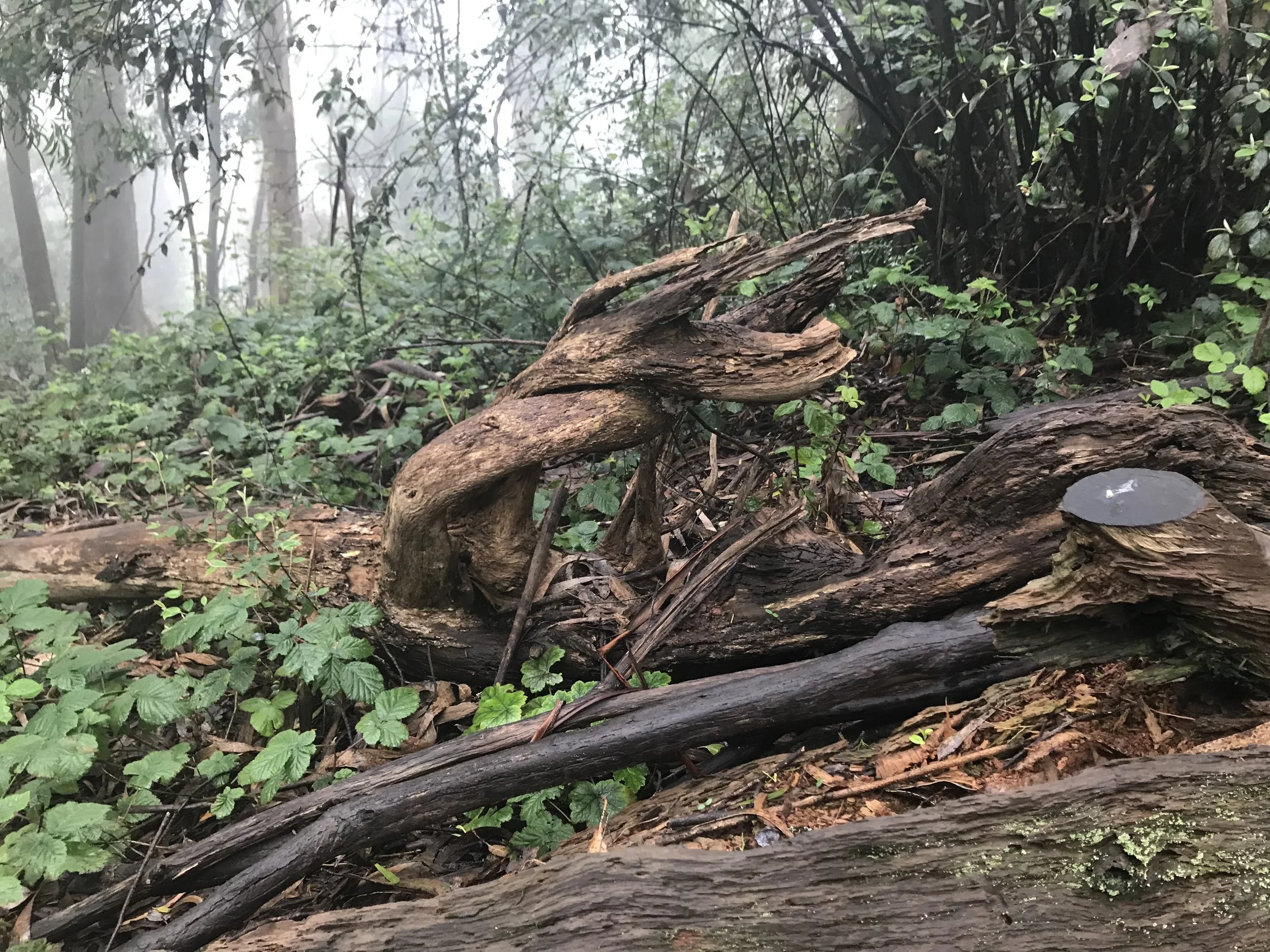Choosing stress
A twisted trunk at Mount Sutro this morning
It’s still an intense time at work, with my company’s big conference (and many of our big launches for the year) just over a month away. I tried to ride the waves of that this week—feeling overwhelmed, trying to forgive the overwhelm, trying to make something of it. All along, though, I had this awareness that the stress I was feeling was the stress I chose. Launching features is the bread and butter of product management, and the feature I’m working on is one I’m really excited about. I’ve had all kinds of stress in my life, and this is my favorite kind. I feel that favor, that close fit, every day. Somehow, I can curse the stress and feel grateful for it at the same time.
Thinking about stress reminded me of a book I read earlier this year at Erik’s suggestion: The Upside of Stress: Why Stress Is Good For You, and How to Get Good at It, by Kelly McGonigal. I went back to my highlights to find a passage to share here, and so many struck me that I thought I’d share a few.
Stress is what arises when something you care about is at stake.…You don’t stress out about things you don’t care about, and you can’t create a meaningful life without experiencing some stress.
The first step is to acknowledge stress when you experience it. Simply allow yourself to notice the stress, including how it affects your body. The second step is to welcome the stress by recognizing that it’s a response to something you care about. Can you connect to the positive motivation behind the stress? What is at stake here, and why does it matter to you? The third step is to make use of the energy that stress gives you, instead of wasting that energy trying to manage your stress. What can you do right now that reflects your goals and values?
Some degree of stress during pregnancy may even benefit the baby. For example, researchers at Johns Hopkins University found that women who reported greater stress during pregnancy had babies born with superior brain development and higher heart rate variability, a biological measure of resilience to stress. The exposure to a mom’s stress hormones in the womb teaches a baby’s developing nervous system how to handle stress.
People who said they were under a lot of stress right now also rated their lives as more meaningful. Even time spent worrying about the future was associated with meaning, as was time spent reflecting on past struggles and challenges. As the researchers conclude, “People with very meaningful lives worry more and have more stress than people with less meaningful lives.”
When you believe that stress is harmful, anything that feels a bit stressful can start to feel like an intrusion in your life. Whether it’s waiting in line at the grocery store, rushing to meet a deadline at work, or planning a holiday dinner for your family, everyday experiences can start to seem like a threat to your health and happiness. You may find yourself complaining about these experiences, as if your life has gone off course and there is some stress-free version of it out there waiting for you.
Choosing to see the connection between stress and meaning can free you from the nagging sense that there is something wrong with your life or that you are inadequate to the challenges you face. Even if not every frustrating moment feels full of purpose, stress and meaning are inextricably connected in the larger context of your life. When you take this view, life doesn’t become less stressful, but it can become more meaningful.
This is what it means to be good at stress. It’s not about being untouched by adversity or unruffled by difficulties. It’s about allowing stress to awaken in you these core human strengths of courage, connection, and growth. Whether you are looking at resilience in overworked executives or war-torn communities, the same themes emerge. People who are good at stress allow themselves to be changed by the experience of stress. They maintain a basic sense of trust in themselves and a connection to something bigger than themselves. They also find ways to make meaning out of suffering. To be good at stress is not to avoid stress, but to play an active role in how stress transforms you.
When you stop resisting it, stress can fuel you.
The Upside of Stress really changed the way I think about stress—and that changed the way I feel about stress. In these passages I read in January, I can see the glimmers of some mindset shifts that have slowly taken root:
Stress isn’t wrong.
Steady-state serenity and blissful comfort aren’t possible—or even desirable.
Everything comes back to the meaning we make.
The way I’m dealing with stress right now: sharing my experience with the people I care about; letting myself work more than normal (“mak[ing] use of the energy that stress gives you, instead of wasting that energy trying to manage your stress”); making food, sleep, and long walks important; remembering it’s not forever; remembering that I chose this.

